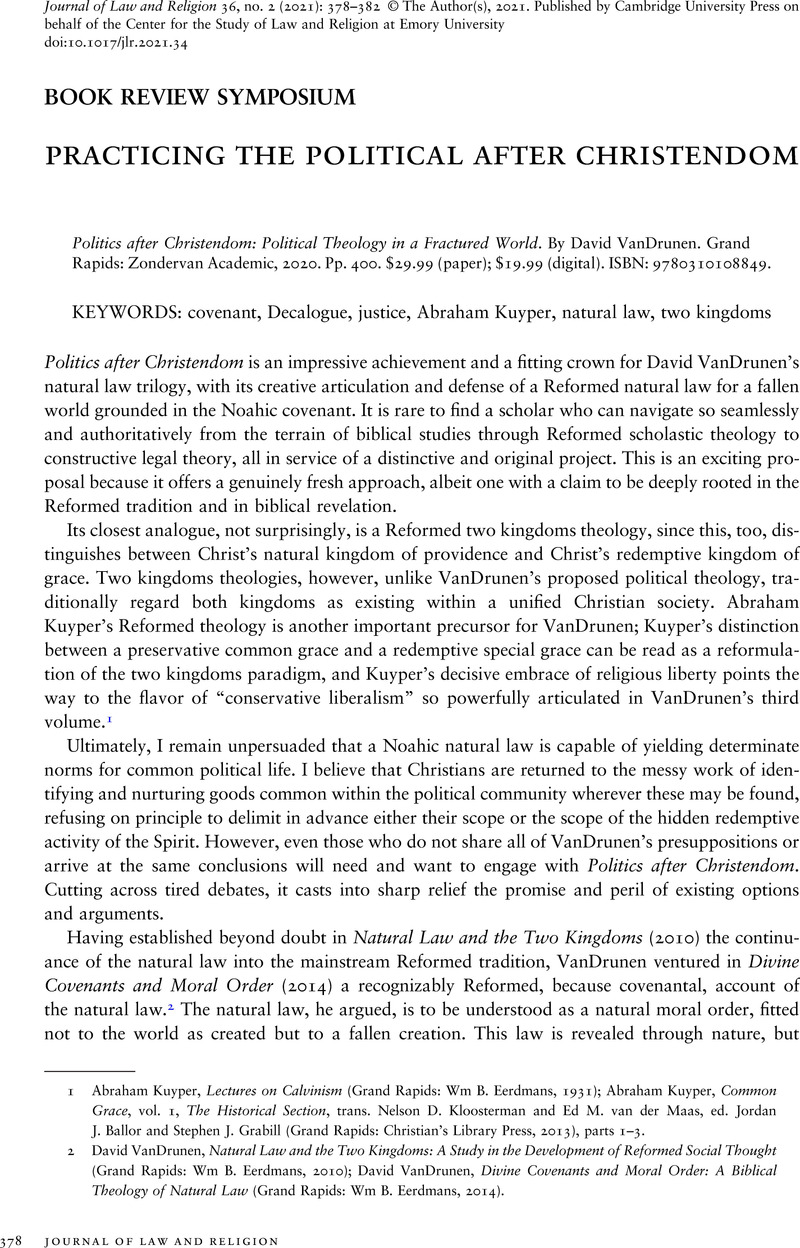No CrossRef data available.
Published online by Cambridge University Press: 16 August 2021

1 Kuyper, Abraham, Lectures on Calvinism (Grand Rapids: Wm B. Eerdmans, 1931)Google Scholar; Kuyper, Abraham, Common Grace, vol. 1, The Historical Section, trans. Kloosterman, Nelson D. and Ed van der Maas, M., ed. Ballor, Jordan J. and Grabill, Stephen J. (Grand Rapids: Christian's Library Press, 2013), parts 1–3Google Scholar.
2 VanDrunen, David, Natural Law and the Two Kingdoms: A Study in the Development of Reformed Social Thought (Grand Rapids: Wm B. Eerdmans, 2010)Google Scholar; VanDrunen, David, Divine Covenants and Moral Order: A Biblical Theology of Natural Law (Grand Rapids: Wm B. Eerdmans, 2014)Google Scholar.
3 Augustinian liberalism can be traced to Robert Markus's influential Saeculum: History and Society in the Theology of St. Augustine, second edition (Cambridge: Cambridge University Press, 1989). Others in this broad lineage, but departing from Markus's embrace of the vision of a neutral public sphere, include Mathewes, Charles, A Theology of Public Life (Cambridge: Cambridge University Press, 2007)CrossRefGoogle Scholar; Gregory, Eric, Politics and the Order of Love: An Augustinian Ethic of Democratic Citizenship (Chicago: University of Chicago Press, 2008)Google Scholar; Bretherton, Luke, Christianity and Contemporary Politics (Oxford: Wiley-Blackwell, 2010)CrossRefGoogle Scholar. Perhaps the most prominent contemporary Augustinian antiliberal is John Milbank, as evinced in his Theology and Social Theory (Oxford: Blackwell, 1993).